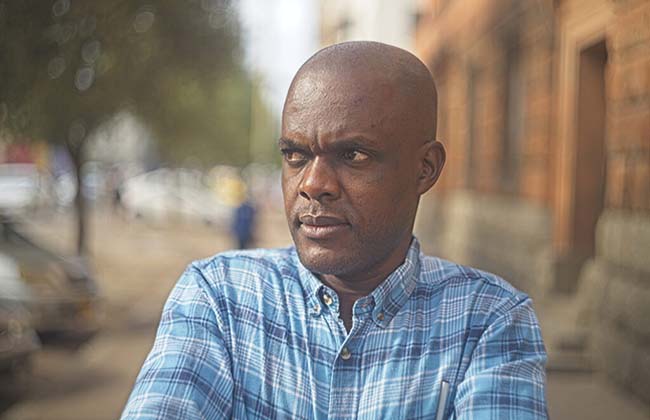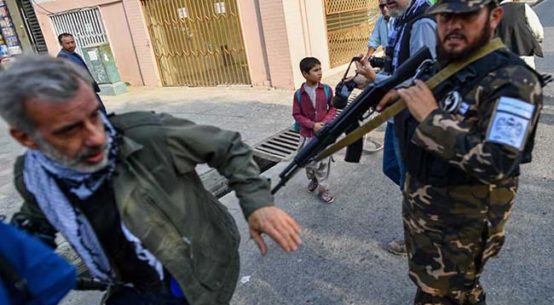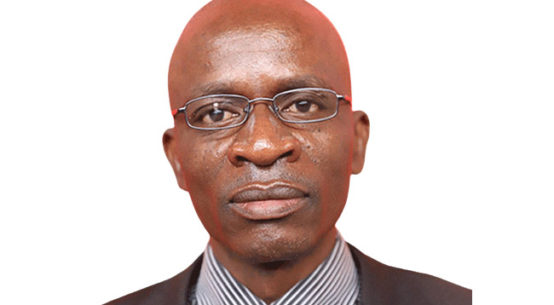
Journalists in Zimbabwe face death sentences, life imprisonment and other heavy penalties should authorities in Southern Africa sign into law Criminal Law ahead of the country’s polls on 23 August, as global watchdog, Reporters Without Borders, lobbies for media rights to inform.
Once the draconian Bill– called the Criminal Law (Codification and Reform) Amendment Bill, or Patriot Bill goes through in the country’s National Assembly as espoused by the ruling Zanu PF, the party that has ruled Zimbabwe since independence, media practitioners face a myriad of penalties including life imprisonment, among other infringements.
According to RSF, the international media rights campaigner, Clause 2 of this loosely worded bill has various punitive sentences.
Purveyors of news, face among others, death sentence or life imprisonment for anyone “willfully injuring the sovereignty and national interest of Zimbabwe” if any media attends a meeting and when ‘authorities’ in their own judgment, have “reason to believe” that its aim is “to consider or plan armed intervention.”
Arguably, if the meeting’s aim is “to subvert or overthrow the government,” participants, media included, face up to 20 years in prison. If sanctions or a commercial boycott of Zimbabwe are discussed, they could get a 10-year sentence.
Now that the Bill has been endorsed by the country’s senate, the Patriot Bill – which could clearly be used to imprison journalists covering meetings – will take effect as soon as it receives approval from President Emerson Mnagagwa, who is privileged to assent it in law as soon s he receives it, RSF says in a statement accessed by TWMN.
The media rights group, RSF has cried out against attempts to muzzle the press ahead of the proposed general elections on 23 August urging Zimbabwe, where media rights have remained on tentacles, to abandon a proposed “sovereignty and national interest” law that poses a major threat to journalism and give latitude to journalists to perform their role.
“Freedom of expression must be safeguarded,” RSF says, while bemoaning the heavy penalties proposed in the Bill, which if passed in its current form could flout the constitution and international standards on freedom of expression.” Says Sadibou Marong, director of RSF’s sub-Saharan Africa desk.
“This law is a formidable tool that will completely muzzle the press. Two months before the presidential and parliamentary elections, we urge the authorities to respect basic human rights, which include the right of assembly, the right to express oneself, and the right to inform. Journalists must be able to carry out their work without fear.”
Zimbabwe Lawyers for Human Rights executive director Roselyn Hanzi is cited as noting that the law “will set a bad and dangerous precedent on the continent” and could lead to more self-censorship in Zimbabwe.
“If a journalist is invited to attend a meeting by a foreign government, they may be forced to reject the invite as they will not know if these topics will not be discussed,” she said. “Any other participant at the meeting can raise that subject, and mere attendance may even lead to arrest.”
As the bill’s provisions are loosely worded, they are liable to be misinterpreted and are therefore all the more likely “to stifle freedom of expression,” Hanzi warned. Some of the provisions violate Zimbabwe’s constitution, article 48 of which limits the death penalty to persons convicted of aggravated murder.
Hopewell Chin’ono, a journalist who has often been arrested and threatened for criticising the government, condemned the bill when it was passed on 31 May. “A very sad day for Zimbabwe today,” he tweeted. “Free speech is now dead.”
Ruling party legislator Joseph Chinotimba insisted that the bill was “honourable and nourished by good intentions.”
“This bill does not aim to reduce the existence of political parties, but to encourage Zimbabweans to love their country and stop denouncing it.”
Zimbabwe’s legislation continues to impose heavy restrictions on its media. Some draconian laws were repealed but were replaced by others that are just as harsh and still limit journalistic freedom. To avoid reprisals, journalists routinely censor themselves.
Journalists remaining in Zimbabwe are either without jobs in their profession, or they work under threat of laws that, among other things, set prison terms of up to 20 years for publishing false information deemed prejudicial to the state.
An estimated 90 Zimbabwean journalists, including many of the nation’s most prominent reporters, now live in exile in South Africa, other African nations, the United Kingdom, and the United States, making it one of the largest groups of exiled journalists in the world, the Committee to Protect Journalists says in its report.
About Fifty-five journalists were killed last year. Far more are abused and bullied by officials and corporations that do not want them to tell the truth. For regimes that need to control information to stay in power, reporters are a variable they often seek to silence.
In Africa, journalism is being silenced by the collapse of newsrooms; by elites buying news media and guiding coverage; by threats; and by hostile acts. At least 75 journalists are in prison across Africa.
Zimbabwe’s government is no stranger to strangling journalists. RSF ranks it 130 out of 180 countries for media freedom.
‘I was jailed for doing journalism – and the nightmare is not over’
Last year, authorities in Zimbabwe arrested renowned journalist Jeffrey Moyo on flimsy charges. Media freedom advocates have accused the government of trying to suppress his work, and that of the US journalists he was working with, The Mail and Guardian reported.
The crackdown has taken a devastating toll on Zimbabwe’s independent media. Once home to a robust press corps, Zimbabwe today has no independent daily newspapers, no private radio news coverage, and just two prominent independent weeklies.
Number of jailed journalists spikes to new global record
The number of journalists jailed around the world set yet another record in 2022. In a year marked by conflict and repression, authoritarian leaders doubled down on their criminalization of independent reporting, deploying increasing cruelty to stifle dissenting voices and undermine press freedom.
The year 2022 is dubbed another record-breaking year because for the number of journalists jailed for practicing their profession, according to the Committee to Protect Journalists’ annual prison census.
A total 363 reporters were deprived of their freedom as of December 1, 2022 – a new global high that ‘overtakes’ 2021 record by 20% and marks another grim milestone in a deteriorating media landscape.
This year’s top five jailers of journalists are Iran, China, Myanmar, Turkey, and Belarus, respectively. A key driver behind authoritarian governments’ increasingly oppressive efforts to stifle the media: trying to keep the lid on broiling discontent in a world disrupted by COVID-19 and the economic fallout from Russia’s war on Ukraine.




